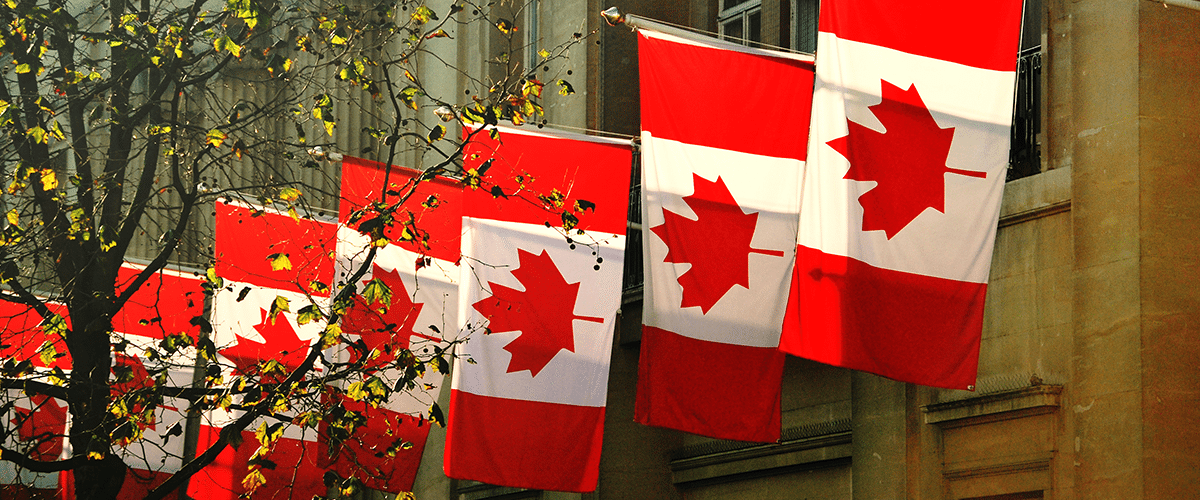[vc_row][vc_column][vc_column_text]
Nearly 130,000 have become qualified patients since Canada’s medical marijuana program was introduced four years ago.
Canada’s nearly four-year old medical marijuana program has grown 1,544 percent over the past two and a half years, MSN reports.
There were 129,876 patients signed up for Canada’s medical cannabis program as of December 31, up from 7,900 patients in mid-2014. The program had 98,460 registered patients at the end of September 2016 before it grew an impressive 32 percent over the last three months of the year.
The recent spike in registered medical cannabis patients is likely related to a combination of growing demand and physicians becoming more comfortable with prescribing the substance, according to Dr. Jeff Blackmer, Canadian Medical Association Vice President.
Several cannabinoid-based medications are approved for use in Canada, according to Dr. Mark Ware, pain specialist and medical cannabis researcher at McGill University. Medical marijuana among Canadian veterans was found to be on the rise last summer, as more of the country’s former soldiers elected to use the natural properties of cannabis to treat their ailments rather than pharmaceuticals.
“There is a very long list of conditions for which people have claimed benefit from cannabis use,” Ware told MSN in an email. “Most of these conditions have not been formally studied in clinical trials, but intriguingly, for many such ‘claims,’ there is a body of scientific literature that provides a rationale for why cannabis might work for those conditions.”
Toronto family practitioner Dr. John Goodhew told MSN that he prescribes cannabis to help his patients manage pain and weight loss caused by nausea, hepatitis C, and inflammatory bowel disease. He admitted to seeing a significant influx in new patients seeking a recommendation to access medical cannabis, but noted that he would only provide prescriptions to established patients.
“So patients will frequently call me and I’m not able to help them because I only consider marijuana as a therapeutic agent for people in my practice, people that I know, people whose medical histories I’m familiar with,” Goodhew said. “And this is really the only responsible way to do it. Unfortunately it leaves other people kind of in the lurch.”
[/vc_column_text][/vc_column][/vc_row][vc_row][vc_column][vc_single_image image=”17365″ img_size=”1200×250″ onclick=”custom_link” img_link_target=”_blank” link=”https://www.medicalmarijuanainc.com/overview-of-medical-marijuana-research/”][/vc_column][/vc_row][vc_row][vc_column][vc_column_text]Goodhew and Blackmer both suggested that some of the increase in demand for medical cannabis could be associated with Canadians’ enthusiasm for the country’s soon-to-come adult use program. The country is expected to legalize recreational marijuana sometime in 2017. The task force responsible for suggesting how to best regulate and implement the program has already submitted its recommendation report.
Many Canadian physicians are anxious for recreational marijuana to be legalized and regulated, as they believe it’ll help them from being inundated with interested patients.
“We would like to see just one system,” Blackmer told MSN. “So if marijuana is legalized for recreational use, we feel very strongly that that makes the ‘question’ around use of medical marijuana essentially moot, because it would be something that’s available to everyone for any reason, and you wouldn’t need to go through physicians and you wouldn’t need to get special dispensation.”
A study conducted last winter estimated that Canada’s cannabis market would be worth nearly $23 billion once the country legalizes recreational marijuana.
Follow the legal cannabis industry in the U.S. by regularly visiting our news feed.[/vc_column_text][/vc_column][/vc_row]






